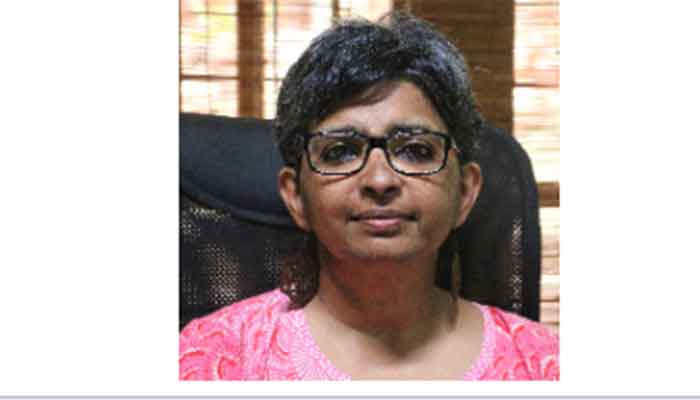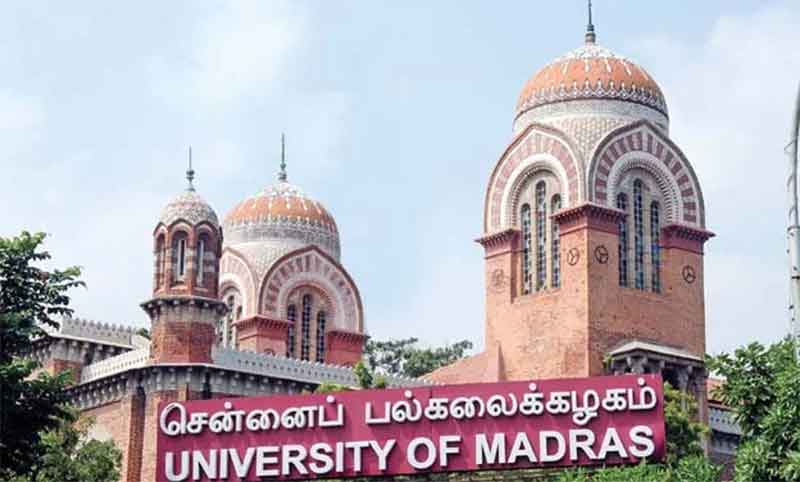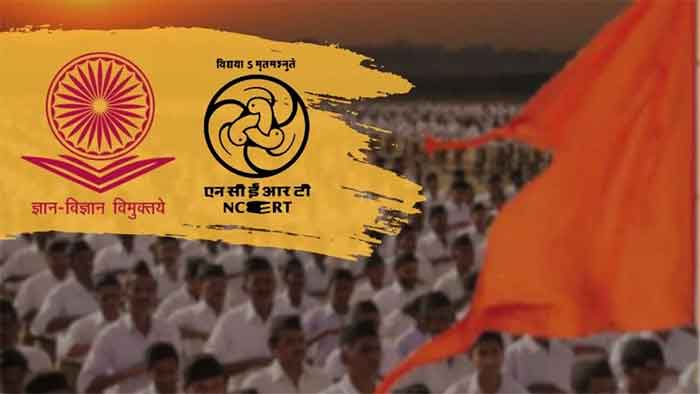
“The higher education in India is poised for colossal changes with deleterious outcomes under the ‘surveillance capitalism,’” according to G. Arunima, Professor, Jawaharlal Nehru University and the Director of Kerala Council for Historical Research (KCHR). She was delivering the Third “Scholars of Eminence Web-Lecture” (SEW-L) organised by the Inter University Centre for Social Science Research and Extension (IUCSSRE), Mahatma Gandhi University on the theme “Life of the Mind: Future of the Public University in an Era of Surveillance Capitalism.”
Prof Arunima said that ‘surveillance capitalism’ and its engagements with big data will eventually lead to people giving up their privacy and their personal information, and the data collected covertly by big tech giants could be potential sources for predicting and influencing human behaviour which has consequences for freedom and political choices. According to her, “Artificial Intelligence (AI)-driven comprehensive, totalizing behavioural changes will have long-term implications for public university in India.”
She said that “until now, we have been focusing mainly on the ongoing struggles in such spaces, where the issues at stake could be related to the right to education, freedom of political expression/dissent/thought, the right to autonomous intellectual life, and the ways in which these could provide the grounds for thinking about academic subjectivities.”
“While, these continue to be of pressing concerns, two different though inter-related themes merit our immediate attention. The first is that of the emergence of e-learning and educational platforms (both twenty-first century phenomena that have grown rapidly in the last 5-10 years), which must be read alongside the increased push for online learning, which is projected as increasing access to education in India.”
Prof Arunima said that “New Education Policy of India (NEP) holds the key to the most decisive changes. Section 23 of NEP valorises the role of disruptive technologies which is seen as a game changer.” A major aspect of this is seen in NEP, which says, “Our present education system’s inability to cope with these rapid and disruptive changes places us individually and nationally at a perilous disadvantage in an increasingly competitive world.” NEP also points out that “while computers have largely surpassed humans in leveraging factual and procedural knowledge, our education at all levels excessively burden students with such knowledge eat the expense of developing their higher-order competencies.” Moreover, NEP says that “AI’s disruptive potential in the work place is clear, and the education system must be poised to respond quickly.”
Prof Arunima said that “The re-aligning of academic priorities, as outlined in the New Education Policy of India (NEP), with its focus on machine learning, AI and big data analysis then positions the future of education, and universities, as part of a larger world of ‘knowledge economy’ creation.” She said that “India, with its vast inequalities and injustices, is also home to a very young population that can potentially be mobilized to be both data providers, and skilled personnel, within such a changing educational setting. Predictably, the focus of higher education, and their loci (until now, mainly the public universities) will change to accommodate shifting priorities of state and business,” she noted.
Prof Arunima also raised concerns over the shifting contexts of academic work, and the ‘worker’, ending with what futures may be possible for intellect work at a time when the prospects of the public university itself are uncertain.”
She said that “the twenty-first century capitalism is no longer interested in what you buy (which is taken for granted), but they want to understand your psyche. It is far more interested in behavioural transformation through big data, and the algorithms are produced to influence the outcomes.” While the U.S. is in the forefront of this manipulative system of surveillance and control (as Edward Snowden revealed through NSA files), Russia and China are known for big data surveillance and manipulation. However, India’s story is yet be made public and understood,” she said.
Prof Arunima said that “one of the issues facing public universities in India is the spectre of privatization.” She asked “why we should privatize the ‘public university’ when a substantial part of the Indian higher education is run privately.” The attempts underway could be symptomatic of the last vestiges of the state-supported liberal education being pushed into the standardization module of surveillance system, she noted.
Prof Udayakumar, currently Fellow at the Nonte Institute of Advanced Study, France and Professor at the Centre for English Studies, Jawaharlal Nehru University chaired the session.
The author is Director, Inter University Centre for Social Science Research and Extension (IUCSSRE), Mahatma Gandhi University, Kerala. He also served as Dean of Social Sciences and Professor of International Relations and Politics, Mahatma Gandhi University. He can be contacted at [email protected]
GET COUNTERCURRENTS DAILY NEWSLETTER STRAIGHT TO YOUR INBOX















































